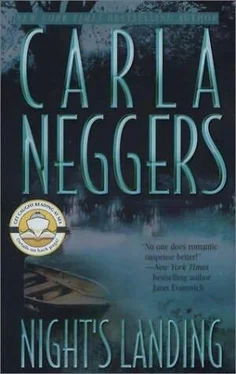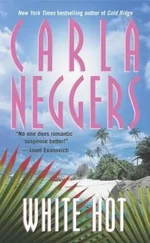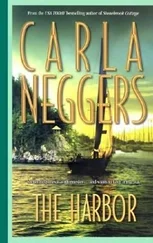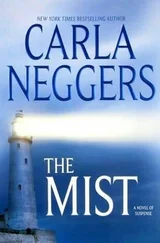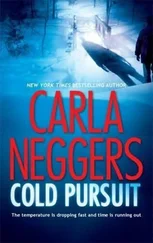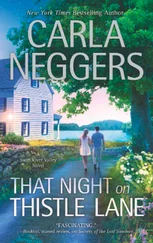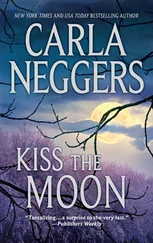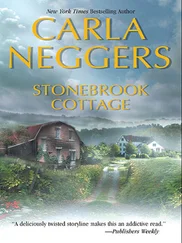Betsy Dunnemore’s daughter was attractive, but she, the mother, was beautiful-and she always had been. As he sipped his espresso and watched her coming up the cobblestone Amsterdam street, Nicholas Janssen remembered the day he met her more than thirty years ago, when they were both freshmen at Vanderbilt University in Nashville. She was beautiful, shy and nervous, although the campus was less than ten miles from her home in Belle Meade.
It was all such a lifetime ago.
She was pale now, clutching her red leather handbag as she threaded her way among the scatter of tables at the streetside café. She’d tied a red silk scarf over her hair and secured it with a knot to one side of her throat, and she wore black pants and a lightweight black-and-white sweater.
Every man at Vanderbilt had wanted her. Nicholas had been just one among many. They’d never dated, had only attended a few classes together before he’d had to leave in the middle of his sophomore year. Family problems, he’d told people, but that wasn’t the reason. Money was. Always money.
When he’d transferred, everyone still assumed that Betsy Quinlan would end up marrying handsome, likable John Wesley Poe, who wasn’t the best student or the worst but was, by far, the most ambitious. Instead, a month after graduation, Betsy married brilliant, eccentric Stuart Dunnemore, a childless widower twenty-two years her senior.
She inhaled sharply when she saw Nicholas and almost stumbled backward. He had deliberately chosen her favorite café not far from the apartment she and her husband had shared since agreeing to participate in a special commission at the International Court of Justice at The Hague.
For a moment, Nicholas thought Betsy would run in the opposite direction, but she regained her composure and proceeded to his table.
She sat across from him and looked at him as if she might have just found a disagreeable insect on her table. But he could see the fear in her gray eyes, the strain of the past twenty-four hours. Amsterdam was six hours ahead of New York-it was late afternoon now. This time yesterday, she would have been just getting the news of the shooting in Central Park.
“Did you have anything to do with what happened to my son?” she asked, her voice low, intense, accusatory.
“Betsy. How could you think-”
She didn’t back off. “Did you?”
Nicholas sipped his espresso and took a small bite of the cookie that came with it. It was a cool, windy afternoon. The café was uncrowded, although bicycles and people moved about in the streets. He was dressed casually in a brown silk sweater and trousers, trying not to call attention to himself, although he doubted a federal agent would jump out of an alley and kidnap him back to the United States. They had bigger fish to fry. Or so they believed.
People often underestimated Betsy Dunnemore. Because she’d married a man so much older, because she’d devoted herself to him and to raising her children. An educated housewife, an amateur art historian. The condescension had to be hard for her to take at times. But Nicholas had known her at eighteen, and he had never underestimated her-her intelligence, her determination, her grit. It was her steady devotion to her aging husband that had taken him by surprise. He’d seen it when he’d first contacted her last fall-another “chance” meeting-with the hope of maneuvering himself into her circle, the dream, even, of having an affair.
He remembered how much he’d wanted her at eighteen.
“I had nothing to do with the shooting.” He kept his tone mild. “I’ve made my share of mistakes, but I’m not a violent man. You’re upset. I understand that.”
“Don’t patronize me. Don’t.” She didn’t yell, but she was tight with anger, an easier emotion for her, he thought, than fear. “You should turn yourself in to U.S. authorities and go home to stand trial. You’re a fugitive, Nicholas. I don’t want anything to do with you.”
“My status is a complicated legal matter.”
“It’s not complicated. You’re charged with felony tax evasion. You were supposed to appear for trial in a U.S. court of law. Instead you fled.” She looked away from him, her lower lip quivering, a weakness she wouldn’t want him to see. “You slipped out of the country to Switzerland-”
“I have a home there.”
“You knew it would be difficult if not impossible for you to be extradited for tax evasion. I don’t know about the Netherlands.” She shifted, her gray eyes on him. “Is it safe for you here?”
“Don’t get carried away. It’s a trying legal matter. Nothing more.”
“Did Rob see you at the Rijksmuseum last month?” She kept her voice low, but her sarcasm was knifelike. “Did he recognize you? Did you have him shot because of it?”
The Rijksmuseum. Nicholas recognized now that intercepting her at the renowned Amsterdam museum had been bad timing. He hadn’t realized her son the U.S. marshal was in town. A critical oversight. But he’d only dared surface in the Netherlands for a short time-he wanted to strengthen the bond between them now that he’d reestablished contact with her. It had been a long, trying winter. Seeing her had renewed his sense of hope.
Yet when they’d stood together three weeks ago in front of Rembrandt’s massive, famous painting, The Night Watch, Betsy had told him-again-that she wanted nothing to do with him.
“Betsy. Please. I’m not here to argue with you. I made an effort to see you because you were a familiar face, an old friend.” That was the truth, as far as it went. Nicholas smiled tenderly. “We had a pleasant visit when I was here last in November. A cup of coffee. A nice chat about old times. It was a chance encounter-”
“It wasn’t chance. You arranged it. You manipulated me so that I’d run into you. I wasn’t aware of your legal status, but I am now.” She didn’t soften. “And we were never friends.”
He attributed her coldness and sarcasm to her desperate fear for her son. He let his gaze drift to the swell of her breasts, the soft shape of her hands. He’d accepted that the chance of a sexual affair was remote, at least while her husband was still alive. Nicholas was a vital man, wealthy, his hair silver now but his body taut, well-conditioned. Stuart Dunnemore was old. Just plain old. He was in his late seventies, but still a force in diplomatic circles, an expert-a visionary-in international conflict resolution. A realist, not a romantic. A pragmatist, not an ideologue. And a good man. He had humility, and he was kind. He’d endured terrible losses, a father dead in a logging accident at thirty-two, a brother killed on the beaches of Normandy, a wife he’d watched slowly waste away from multiple sclerosis.
Betsy would never leave him. But he wouldn’t live forever, either.
Right now, Nicholas needed to play on her emotions-her sympathy for him as a former classmate, for the struggling eighteen-year-old she must remember. He was a self-made man. He’d worked hard. He had so much to offer the world. But he couldn’t contribute if he was behind bars.
The Dunnemores were known for their compassion.
And they had the ear of the new president of the United States.
Betsy was right. It wasn’t just friendship that had drawn him to her. Nicholas wanted to convince her to tell her friend, Wes Poe, that their old classmate deserved a break. He’d paid a price for his mistakes. He would use his wealth for good.
He wanted her to get him a presidential pardon. It would stop the legal proceedings against him dead in their tracks. A pardon wouldn’t exonerate him, but it would keep him out of prison and buy him time to distance himself from his other activities before they, too, caught up with him. Time to take his profits and move on.
Читать дальше
Конец ознакомительного отрывка
Купить книгу
